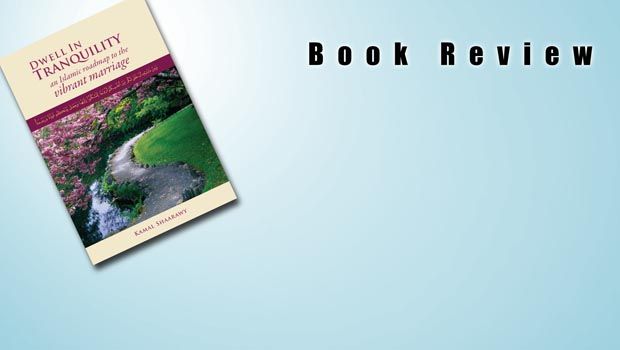I sat across from a client who was telling me the power that salat ul-istikhara had on her, and it demonstrated in real-life terms what Islam teaches us — that a closeness to Allah (SWT) and feeling His presence in all situations, particularly in dark times, can assist us in overcoming the challenging situations in in our lives. The closeness can provide a sense of calm, that the omnipotent Creator is ever watchful over what is happening and is taking care of us. As my client described the positive impact that simply praying the prayer had on her, I was certain that this connection to prayer was a valuable resource in her life and could be a strong handhold for others’ mental health as well.
The connection between religion and mental health has been discussed in detail in articles, publications, and research studies. The overwhelming conclusion is that spirituality can be a significantly positive resource, particularly in times of great distress. As Muslims, knowing that Allah (SWT) is there for us in our moments of hardship is a reminder to practice sabr in its both aspects of patience and perseverance. Not only does He reassure us that He is there with us, closer than our jugular vein (Quran, 50:16), but He also informs us that we have the strength to bear what we are enduring: “God does not burden any human being with more than he is well able to bear…” (Quran, 2:286). Remembering these words and recognizing Allah’s presence in difficult times such as a death in the family, the loss of a job, an anxiety attack, an illness, etc., assists us in overcoming these challenges.
To provide my personal story as an example, I will describe to you a recent struggle in my life in which turning to Allah (SWT) provided comfort. I experienced an anxiety attack a few days ago. Even as a therapist, I am still human and can and do experience difficult emotions. Although it was challenging in the moment, I used breathing techniques and relaxation exercises to help the burdensome energy flow through me. It slowly passed and I continued with what I was doing at the moment. Afterwards, however, I reflected on my life and what may have caused the anxiety deep within me, so deep that I was unaware of it until the attack overtook me. As a spiritual person, my mind often inclines to Allah (SWT) and what lesson He may be teaching me in any situation. Remembering Allah and His presence in my life allowed me to challenge the negative mindset that can result from trying to balance all aspects of my life and sometimes feeling that I am failing. Bringing Allah to mind helped me to focus on the divine presence, and that He is in control of all things.
The Source of Comfort and Satisfaction
I am not always able to reflect so deeply and turn to Allah (SWT) so easily, but because the belief in Him is there and the understanding of trials and difficulty is there, I am able to gather strength and hold on to His rope. Allah (SWT) reminds us that “…truly Allah leaves to stray whom He will; but He guides to Himself those who turn to Him — those who believe, and whose hearts find satisfaction in the remembrance of Allah; for without doubt in the remembrance of Allah do hearts find satisfaction” (Qur’an 13:27-28). Remembrance of Allah (SWT) is a source of comfort in agitation, in distress, in worry, and in physical and emotional pain. When we are able to step back, take a few deep breaths, and turn to Allah (SWT), that awareness of Him can bring ease to our distressed hearts.
The key is to remember Him within the difficulty for that is what will make the test lighter to bear. When we remember Allah (SWT)’s words of “Surely, with every difficulty there is relief” (Quran, 94:6), we are reminded that we can maintain emotional equilibrium even within the hardships. Ease can come from remembering Islamic principles such as the believers are tested (Quran, 29:2-3); that only a pure and sound heart will bring success on the Day of Judgement (26:88-89); that Allah SWT created man in hardship and toil so that he can come to recognize the power of the one who created him (90:4-6); that in times of hardship we should seek help in sabr and prayer and that Allah is with those who practice sabr (21:53); that by following Allah’s guidance, we transcend fear and grief (2:38); that Allah does not burden any person with more than he or she can bear (2:286); that we must change what is in ourselves for Allah to change our condition (13:11); that Allah will smooth the way to ease (87:8).
When we realize the rich trove of guidance we have been provided, it shifts our focus to gratitude. Writer Amy Morin, in her piece titled, “7 Scientifically Proven Benefits of Gratitude,” states that “gratitude reduces a multitude of toxic emotions, from envy and resentment to frustration and regret.” These facts are based on studies conducted by Robert Emmons, a researcher on gratitude. His research uncovers how gratitude lessens depression and increases happiness. In fact, being grateful leads to wisdom. Allah (SWT) tells us, “We endowed Luqman with wisdom: ‘Be thankful to God: whoever gives thanks benefits his own soul, and as for those who are thankless –– God is self-sufficient, worthy of all praise’” (Quran, 31:12).
Healthy Us, Healthy Me
As a marriage and family therapist, I am a systems thinker, so even when I am working with an individual, I view the larger picture — mainly, the relationships individuals are in. Each relationship that we are a part of makes an impact on who we are as individuals. If we are in a healthy relationship, it contributes to our individual happiness. If we are in an unhealthy relationship, it will be detrimental to our mental health. There are a plethora of studies and articles that discuss the importance of healthy relationships and their effects on individuals. One research study performed at the University of Cambridge in 2010 found that people in healthy relationships have a 50 percent greater likelihood of survival than those who are not. Another study conducted at the University of Michigan in 2013 discovered that those who are in unhealthy relationships are more likely to suffer from depression. These studies, and so many more, address the correlation between mental health and unhealthy/healthy relationships, an interaction that is too vital for us to ignore.
Islam emphasizes the importance of relationships, keeping the ties of kinship, being kind to one another, forgiveness, and so much more, all contributing to healthy relationships. If we are God-conscious in each and every relationship, it can make a beneficial impact on the health of that relationship and thus have a favorable ripple effect on our internal state of being. One relationship that makes the greatest impact on our lives is the relationship we have with our parents. Allah (SWT) says, “Your Lord has decreed that you worship none but Him, and that you be kind to parents. Whether one or both of them attain old age in your life, say not to them a word of contempt, nor repel them, but address them in terms of honor. And lower to them the wing of humility and say: ‘My Lord! Have mercy upon them as they raised me [when I was] small’” (Quran, 17:23-24).
These are essential reminders to all children to maintain a respectful and positive relationship with their parents. A healthy relationship with one’s parents is absolutely essential to mental health. Of course, a healthy relationship between parents and a child starts with the parents. When they respect their children as little human beings, showing them kindness, patience, and understanding — all the while balanced by firmness and authority whenever necessary — the child will reciprocate respect and love. With a constant awareness of Allah’s teachings, kindness and respect will encompass the relationship and it will engender an atmosphere of love.
Also contributing to an atmosphere of love and a healthy relationship between parents and a child is a healthy marriage. A healthy marital relationship is also vital to one’s psychological well-being. Being in a healthy, loving, respectful relationship allows a person to flourish and to excel in his/her personal life as well: “..And one of His signs is – that He created mates for you from among yourselves that you may find tranquility in them, and He put between you love and compassion; most surely there are signs in this for a people who reflect” (Quran, 30:21). When we strive to adhere to Allah’s description of marriage, and we commit to nourish the love and compassion in the relationship, the positive impact will reverberate in the entire household, encompassing each individual and each family relationship within the whole with ever-growing potential for awareness, emotional intelligence, and maturity.
Mental Strength
Living a God-conscious life can contribute to a healthy internal state of being and positive mental health. Yet, it is essential to recognize that sometimes we are beset by our own limitations. It is necessary to reach out to someone when difficulties arise and they become too challenging to manage. I myself, a therapist, see a therapist to help manage my anxiousness and to assist me through life’s struggles. Seeking help from a trusted family member or friend, or from a mental health professional, in no way means that a person has insufficient faith, is unable to figure out things on their own, is a weak person, etc. It is important for us as a community to throw out all the negative assumptions about seeking advice or counseling and be brave enough to encourage ourselves and others to seek it when necessary. It is a resource Allah (SWT) has provided for us and can be an extremely positive step in our journey towards His Paradise.
Islamically, our mental and emotional health is at the center of our faith, our striving, our capacity for joy, and our success in this life and the Hereafter. The Prophet (pbuh) said, “There is no disease that Allah has created except that He also has created its treatment” (Bukhari). When we think of disease or illness, we immediately think of the physical ailments, but illness includes mental health challenges as well. Allah (SWT) did not leave us alone to deal with difficulties, but He provided us with many avenues of healing that can aid in easing our lives.
We end this article with a positive reminder from Allah (SWT), the source of all strength and hope: “…Allah guides him who seeks His good pleasure unto paths of peace. He brings them out of darkness unto light by His decree and guides them unto a straight path” (Quran, 5:16). May we turn to Allah, the loving guide, in our moments of despair and heartache, and may He help us reach our full potential on the path to the eternal abode of Paradise. Ameen.






